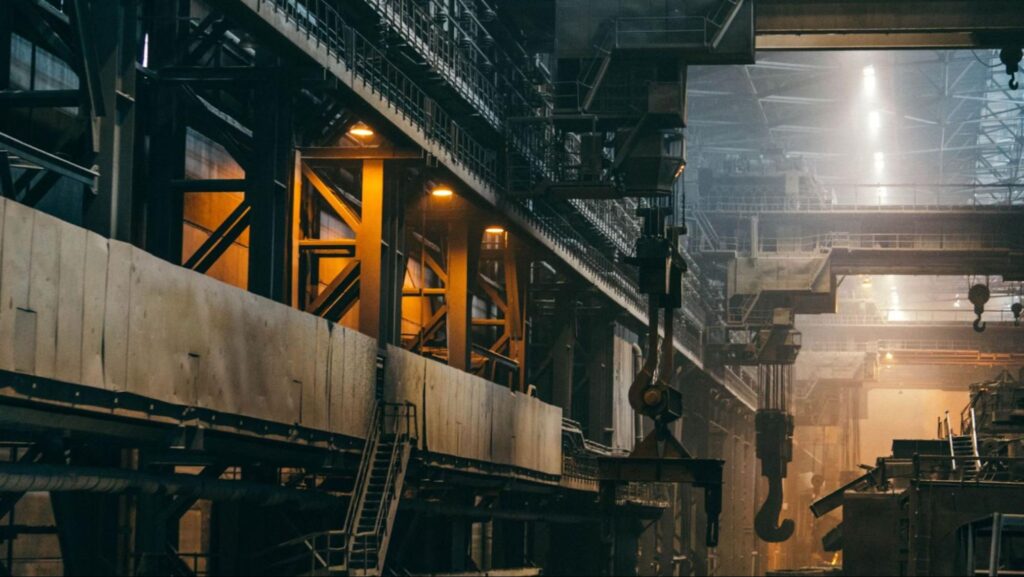Running an industrial business requires the right tools to ensure efficiency, productivity, and safety. The right equipment can streamline operations, reduce downtime, and help your team achieve better results. Whether you’re managing a construction site, a manufacturing plant, or a warehouse, having the essential industrial tools on hand is crucial. Below are six types of industrial tools that can make a significant difference in your business operations.
Power Tools
Power tools are a staple in any industrial setting. From drills to saws and grinders, power tools increase efficiency and reduce the manual effort required to complete various tasks. They come in electric, pneumatic, and hydraulic versions, each suited to different needs depending on the nature of your business. For example, cordless power drills offer mobility and convenience, while hydraulic tools are more powerful and ideal for heavy-duty tasks. Ensuring your team has access to high-quality power tools can drastically improve job performance and reduce the time spent on repetitive tasks. It’s also important to provide training on proper tool use and maintenance to extend their lifespan and ensure safety.
Cutting Tools
Cutting tools are essential for tasks involving materials such as metal, wood, and plastic. Industrial-grade cutting tools, including plasma cutters, circular saws, and laser cutters, enable precise cuts that are critical to the production process. Choosing the right cutting tools depends on the materials you’re working with and the level of precision you require. For businesses in industries such as construction or metalworking, durable cutting tools are crucial for maintaining the quality of finished products. With the correct cutting tools, your team can create clean, accurate cuts, reducing waste and improving overall efficiency.
Material Handling Equipment
Efficient material handling is essential in industrial settings. Tools such as forklifts, pallet jacks, and conveyor belts make moving heavy materials easier, safer, and more efficient. These tools not only save time but also reduce the risk of injuries associated with manual handling.

Choosing the right material handling equipment depends on the weight, size, and frequency of the materials being moved. Forklifts, for example, are ideal for lifting and transporting large, heavy items, while conveyor belts are suited for continuous movement of smaller products. The investment in high-quality material handling tools is worthwhile as it boosts operational efficiency and safety.
Lifting Solutions
Lifting equipment is a necessity for businesses that handle heavy loads on a daily basis. This category includes cranes, hoists, and hydraulic lifts, which are designed to move large items safely and efficiently. These industrial lifting solutions are especially useful in construction, manufacturing, and warehousing environments, where lifting heavy objects is a regular part of operations. For example, lifting solutions such as cranes or hoists can significantly reduce the manual effort required to lift and position heavy machinery or raw materials. These tools improve safety by minimizing the risk of accidents and allow your team to complete tasks that would otherwise be too physically demanding.
Welding Tools
Welding tools are indispensable in industries that require the joining of materials, particularly metals. Equipment such as arc welders, MIG welders, and TIG welders are used in the construction, automotive, and manufacturing industries. Each type of welding tool offers different advantages depending on the materials and the type of weld needed. For example, MIG welders are known for their versatility and are ideal for working on thicker metals, while TIG welders offer precision and are perfect for finer tasks. The key to successful welding is selecting the right tool for the job and ensuring proper training for operators, as welding requires both skill and attention to safety.
Air Compressors
Air compressors are versatile tool used to power pneumatic tools, clean surfaces, and even inflate tires or equipment. In industrial settings, air compressors are used to operate machinery such as nail guns, spray painters, and drills. The type of air compressor needed depends on the size and scale of the tools being powered. For smaller tasks, portable air compressors may be sufficient, while larger-scale industrial operations might require more powerful, stationary models. The versatility of air compressors makes them a valuable addition to your tool inventory, allowing your business to power multiple tools with a single energy source.

Equipping your business with the right industrial tools can greatly enhance efficiency, safety, and productivity. Power tools, cutting tools, material handling equipment, lifting solutions, welding tools, and air compressors are just a few of the essential items needed to run a successful industrial operation. Investing in high-quality tools and ensuring proper training for your team will not only improve job performance but also reduce the likelihood of workplace accidents. By staying well-equipped, your business can operate smoothly and stay competitive in your industry.
